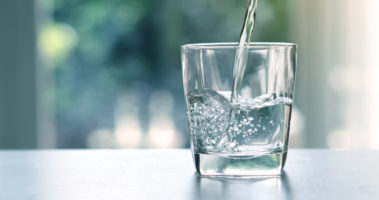Avoiding Dehydration This Summer: How to Detect Signs of Dehydration In The Elderly

We all have experienced the unforgiving heat this summer.
Some areas that don’t even get as hot during the summer are hitting dangerous record highs.
And while the intense heat makes a dip in the ocean even better, the reality is that it can cause severe dehydration for anyone who forgets to hydrate.
Dehydration is worse in the elderly for several reasons.
- A lack of physical mobility means they are less likely to go to the fridge to get a drink when they need it.
- Their bodies are tend to be already more dehydrated because of the aging process. This is why it is common for the elderly to have loose skin.
- Several medications they may be on cause dehydration. Blood pressure medications and antidepressants are well known to cause dehydration in the elderly.
- Illness can also dehydrate the elderly.
- Self-care activities like drinking water can be ignored when dementia sets in.
Throw in the intense summer heat and the possibility for dehydration moves up a number of notches.
What’s the best a caregiver can do?
That is what we discuss in this post.
The Benefits of Drinking Water
Water makes up 70% of our body weight.
Our bodies need water to function properly.
And while there is no set rule of how much water you should be drinking- a lot of health manuals over the years have suggested drinking 8 8-ounce glasses of water per day but this is not supported by research- drinking more water will help your elderly loved one in a myriad of ways.
- Water increases energy and decreases fatigue. Because 90% of our brains are made up of water, drinking plenty water boosts brain health which in turn increases energy levels and wakefulness.
- Water gets rids of toxins in our bodies. Most of the toxins that accumulate in our bodies are expelled through sweat and urine. Sweat and urine are water-based. Thus, it makes sense that the more you drink, the more capable your body becomes of getting rid of harmful toxins.
- Drinking water boosts your immune system.
- Keep your joints lubricated and reduces muscle sprains and strains.
- Drinking water saves you money! Instead of spending money on expensive juices, drinking water is much kinder on your bank account.
And so for all these reasons, it is important that we help our elderly loved ones stay hydrated especially during the hot summer months.
How to Detect Signs of Dehydration In The Elderly
Signs of dehydration include:
- Confusion
- Difficulty walking
- Dizziness or headaches
- Dry mouth
- Sunken eyes
- Inability to sweat or produce tears
- Rapid heart rate
- Low blood pressure
- Low urine output
- Constipation
- If it is severe enough, the person may become unconscious
An easy way to check if a person is dehydrated is to pinch their skin. In a person with normal hydration levels, once you pinch and release the skin, it should go back to normal immediately. If you pinch the skin and it remains in the “pinched” shape, the person is dehydration.
In severe cases, you will need to call 911 for help so your elderly loved one can get immediate help.
Treating Dehydration
As with any medical condition, prevention is better than cure.
As we saw above, encouraging your elderly loved one to drink more water even when they are not thirsty is a simple thing that to do to avoid dehydration problems.
On very hot days, talk to your elderly loved one about staying indoors and avoiding the harsh sun which dehydrates quickly.
If your elderly loved one is in a nursing home, check to make sure they have a hydration program and are encouraging fluids all throughout the day. A research study published in the Journal of Gerontological Nursing shows how inadequate staffing in nursing homes is a contributor to dehydration in seniors.
All the more reason to ensure your elderly loved one is getting everything they need, even if they are in a nursing home.
If water does not taste great to them, infusing water with fruits like strawberries, lemons and cucumber helps to enhance the taste and increase they likelihood that they drink.
Milk and juice are also good fluids to hydrate with.
In case of an emergency, medical personnel will give your elderly loved one intravenous fluids to resuscitate them.
Your elderly loved one may be admitted for 1-2 days for observation.
Closing Thoughts
Dehydration is a serious problem especially when we go through record-breaking heat-wave temperatures.
Our elderly loved ones are usually the ones most at risk for dehydration.
As caregivers and loved ones, we can encourage fluids and staying out of the heat as ways to prevent dehydration from happening in the first place.
Found this article useful?
Bookmark it or share it with someone else.
